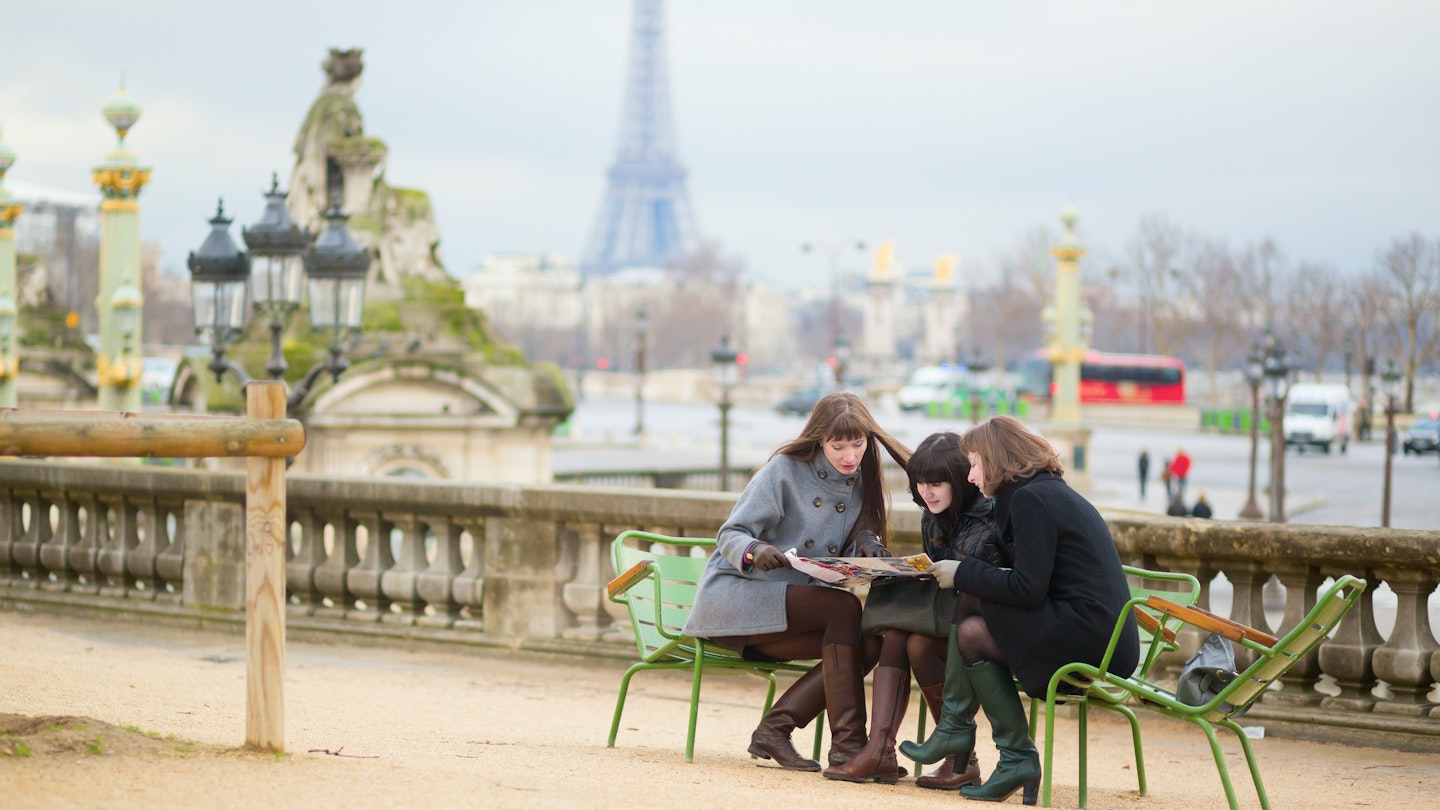Your First Visit to Paris: Essential Tips
Bustling, diverse, and surprising: such is Paris!
Due to its variety and density, navigating this vibrant city for the first time may seem challenging. Even after nearly 20 years of living in Paris, I still encounter nuances in local lifestyles and learn about Parisian peculiarities. For example, be cautious not to take a Metro corridor in the wrong direction, as this could lead to a fine.
1. You Will Want More Time in Paris Than You Think
As the busiest city in France, Paris is rich in events, attractions, and activities. A glimpse can be taken in just a couple of days; however, to truly experience the city’s diverse sights and experiences, five days to a week is considered ideal. Paris can be enchanting year-round, but it’s worth noting that August is the traditional holiday period in France, which might lead to closures and a slowdown in local activities.

2. Reserve Main Attractions in Advance
To maximize your limited time, pinpoint in advance the main attractions you want to visit. Moreover, booking online for museums, exhibitions, or theater performances will save you significant time waiting in line. Remember, Parisians enjoy their museums as much as tourists, so visiting on weekdays and starting early can greatly enhance your experience of busy landmarks.
3. Leave Some Time to Wander
If you prefer a spontaneous approach, consider strolling until you find yourself pleasantly lost, discovering the unique identity of each arrondissement. These districts are shaped by various layers of history. With most landmarks concentrated in the city center, it’s easy to wander around without getting bored. In fact, there’s even a French word for this leisurely exploration: flâner.
4. Dress Like a Parisian
Wear something comfortable, as Paris is best explored on foot. Dark clothing will generally help you blend in with the locals and deter pickpockets. That said, if you enjoy dressing up, don’t hesitate! This city is, after all, the home of couture.
5. Respect Personal Space
Being mindful of personal space is crucial if you wish to blend in, especially on public transportation. The golden rule when navigating Paris, particularly on the Metro and RER, is to be unobtrusive. During busy hours, put your backpack down and avoid using fold-down seats. When the carriage is full, it might be better to wait for the next train, which usually arrives quickly. Always keep to the right on corridors and escalators, and have your ticket handy for frequent checks.

6. Familiarize Yourself with Café Culture Etiquette
The best places to experience Paris and its people are at the cafés. Take a moment to rest on a terrasse—café tables on the street—to people-watch while planning your next move. When you arrive, simply choose a table, and servers will attend to you. Bills are often left with the order on the table, but immediate payment isn’t usually expected. Tipping is appreciated, though not required.
7. Try and Speak French
Despite the city’s hustle, Parisians will generally stop to help if asked. Most individuals can give basic directions in English. Begin with the phrase “excusez-moi, parlez-vous anglais?” to get someone’s attention. It’s also polite to greet and say farewell to those you interact with, using bonjour (or bonsoir at night) and au revoir.
8. Bus and Tram Services are More Accessible
For those needing additional accessibility, traveling by bus or tram is usually easier than the Metro. The few Metro stations with elevators are indicated on the maps. Buses and trams are more spacious, located at street level, and typically equipped with ramps.
9. Always Keep an Eye on Your Belongings
Wherever you go, remain vigilant regarding your personal belongings, as pickpocketing is a risk, particularly on the Metro and near popular tourist sites. Scammers may distract you with petitions or items for sale, making you vulnerable to accomplices. Politely decline unsolicited interactions and be cautious of overpriced souvenirs sold by street vendors.

10. Crossing Roads Can Be Complicated
Exercise caution on the streets, where cars, bikes, scooters, and pedestrians coexist in these busy areas. While the French drive on the right, do be aware that bicycles and scooters may use lanes that run counter to traffic or merge with pedestrian walkways. It’s imperative to look in all directions before stepping onto the road.
11. Paris is Generally a Safe City
Fortunately, Paris is primarily a safe city. While some localized areas may experience crime, especially at night, tourists are unlikely to be targeted for violent crimes, especially when remaining in central areas. If late-night transportation is needed when the Metro is not operational, it is safest to call for a taxi or use a ride-hailing app.
12. Every District has its Own Central Police Station
In case you require police assistance, locate the nearest police station, as every arrondissement has its central office, open at all times. Alternatively, you can dial the European emergency number (112).
13. The Standard of Medical Care is High
Should you need medical assistance, Paris boasts the largest public hospital system in Europe, equipped to accommodate travelers. Dial 15 for ambulance services in case of emergencies. Over-the-counter medications are readily available at pharmacies found on nearly every street, many of which have English-speaking staff. Utilize mapping apps to locate the nearest 24-hour pharmacy if needed.
By keeping these essential tips in mind, you can make the most of your trip to Paris, ensuring a delightful and enriching experience in the City of Lights. Enjoy every moment of your visit!





